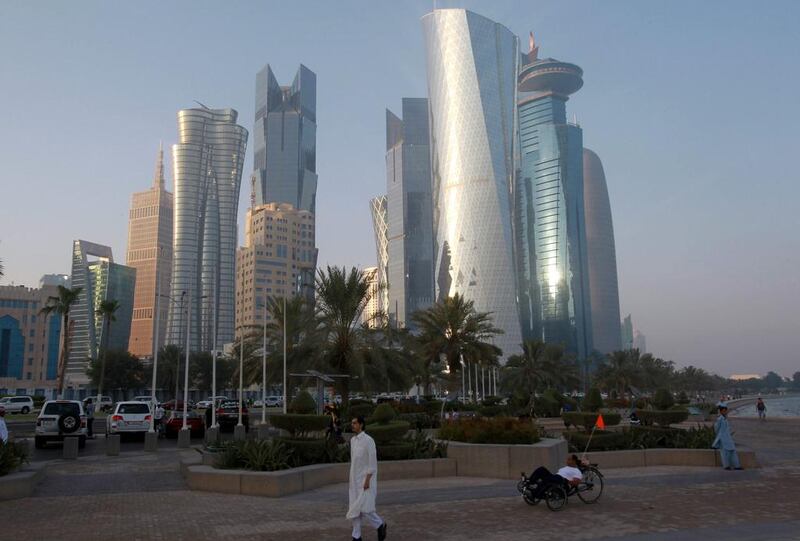Qatari “plots” against the UAE and other Gulf States have been revealed in a new documentary released by UAE state television.
It is claimed that Doha attempted to recruit militants from within other neighbouring Gulf states in a bid to link these countries with radicals and undermine their anti-terror stance on the global stage.
The television report also accuses Qatar of providing moral support to terror networks by offering them a safe haven. The documentary comes at the height of the diplomatic crisis in the Gulf, as Saudi Arabia, the UAE, Bahrain and Egypt have boycotted Qatar over its support for extremist groups and 'meddling in the affairs' of these countries, as stated by them.
Citing video and audio confessions by Mahmoud al-Jaidah, a Qatari doctor jailed in the UAE for his ties with banned Islamist group Al Islah, the documentary claims Qatar "took advantage" of his conviction to dissolve the secret terrorist organisation in the UAE.
____________________
Read more:
Centcom: Qatar dispute hindering lomg-term planning at Udeid airbase
Doha's failure to keep to 2014 pledge led crisis to boil over, says Al Otaiba
____________________
The country is accused of hosting several meetings to support Al Islah and acting as a mediator to facilitate the financing of terrorism, by providing accommodation in its hotels to fugitives and members of the illegal Islamist group.
Confessions revealed in the television report also refer to the use of Qatari "agents" to destroy the Gulf Cooperation Council structure and systems.
Doha is said to have attempted to recruit militants from within GCC countries to carry out acts of terror inside the UAE and other Arabian Gulf countries, in what the documentary says was a bid to link these nations with terrorism and turn the spotlight away from Qatar.
Testimonies in the documentary also give a unique insight into the organisational fabric of the Qatari Muslim Brotherhood, revealing the existence of an "Executive Office" and "Shura Council" within its structure.
In his confessions, al-Jaidah highlighted the transformation of Qatar over the past two decades into "the preferred" and "only" mediator of banned extremist organisations. He noted that these actions and meetings resulted in the "blatant financing" of designated terrorist organisations.
The report referred to Qatar's efforts to embrace extremist organisations - like the Muslim Brotherhood - to play a larger regional role, while allowing these organisations to infiltrate its state-run facilities and become key decision-makers within Doha.
The account given by Mahmoud al-Jaidah - who had been granted amnesty but, on his return to Qatar, attacked the UAE on state television - is further evidence of the country's close association with the Muslim Brotherhood and the incubation of its militants.
He claimed the Qatari government provided material and moral support to fugitive members of the organisation.
Al-Jaidah revealed that contact between Al Islah member began with Khalid Mohammed Abdullah Al Shaiba, who was jailed for 10 years over his links to the Muslim Brotherhood and setting up a branch of the organisation in the UAE.
Another Muslim Brotherhood defector, who also appears in the documentary, claimed Qatar has been widely considered the leading financier of the organisation since 1995.
The documentary reference official sources about ' Qatar's secret files point to the presence of hundreds of people like Mahmoud al-Jaidah in the GCC countries'. It added that Qatar has recruited and trained these people with one aim in mind : to destroy the GCC system.





